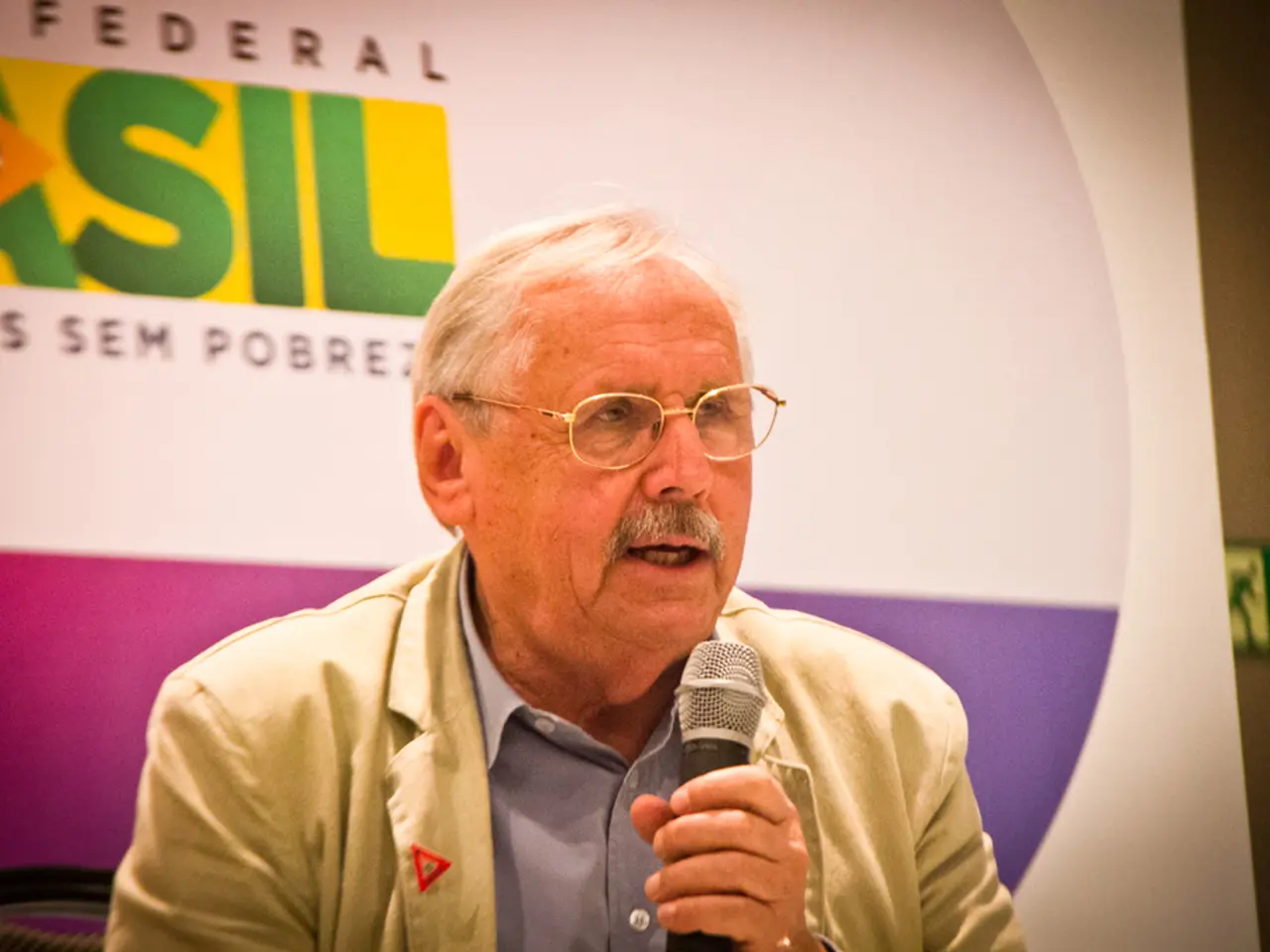Skydance and Paramount's $8 Billion Merger Receives Green Light from the FCC
FCC Approves Skydance-Paramount Merger Amid Controversy
The Federal Communications Commission (FCC) has given its approval to Skydance Media's $8 billion acquisition of Paramount Global, a decision that has sparked debate and controversy. The merger, which was finalized in 2024, received the green light on July 24, 2025.
David Ellison's Skydance will take over Paramount, with Ellison becoming chair and CEO, and Jeff Shell named president. The deal encompasses major media assets such as CBS, Paramount Pictures, and streaming service Paramount+ [1][4].
In terms of commitments to Diversity, Equity, and Inclusion (DEI) initiatives, Skydance has pledged not to establish any such programs in CBS, aligning with the stance of former President Trump, who believes such initiatives are discriminatory. Instead, Skydance has committed to appointing an ombudsman to evaluate complaints of editorial bias or other concerns about CBS [1].
Regarding localism, the FCC's approval involved transferring relevant FCC licenses necessary for the acquisition [4], but specific commitments made by Skydance in this regard have not been detailed in the available information.
The approval process has been criticized by some U.S. senators who view it as partisan. The timing of the approval, coming just days after Paramount agreed to a legal settlement with former President Trump, has also raised eyebrows [2]. Bloomberg reports suggest that Skydance made concessions to the Trump administration to facilitate the deal [3].
Commissioner Gomez voiced her concern about the transaction, stating that it erodes press freedom and is part of a growing record of abuse that threatens press freedom in the country. She dissented from the FCC's decision, citing Paramount's settlement of a baseless lawsuit as a reason [1].
The FCC stressed that the merger will result in a $1.5 billion investment into Paramount, bolstering all aspects of its operations, including broadcast [4]. However, it did not impose conditions on the merged company to prevent it from abusing power over stations in terms of fees and retransmission consent negotiations.
Skydance has emphasized its commitment to fair, unbiased, and fact-based reporting, and reaffirmed localism as a core component of the public interest standard. The company also pledged to work closely with affiliated broadcast stations to ensure a productive partnership that strengthens their ability to serve local communities [4].
The order approving the transaction can be found online, along with Commissioner Gomez's full statement [1].
[1] Federal Communications Commission (FCC) - [Link to FCC website] [2] U.S. Senate - [Link to U.S. Senate website] [3] Bloomberg - [Link to Bloomberg article] [4] Skydance Media - [Link to Skydance Media website]
- The FCC's approval of the Skydance-Paramount merger, worth $8 billion, has led to intense debates and controversies.
- The merger, finalized in 2024 and approved on July 24, 2025, transfers FCC licenses necessary for the acquisition.
- Despite Skydance's pledge to appoint an ombudsman to address issues of editorial bias, the company has decided against establishing any Diversity, Equity, and Inclusion (DEI) programs in CBS.
- Skydance's acquisition of Paramount includes major media assets like CBS, Paramount Pictures, and streaming service Paramount+.
- The merger will result in a $1.5 billion investment into Paramount, aimed at strengthening all aspects of its operations, including broadcast.
- The FCC did not impose conditions to prevent the merged company from abusing power over stations in terms of fees and retransmission consent negotiations, stirring concerns about press freedom and the company's potential impact on general-news, politics, entertainment, video, media, and business.




